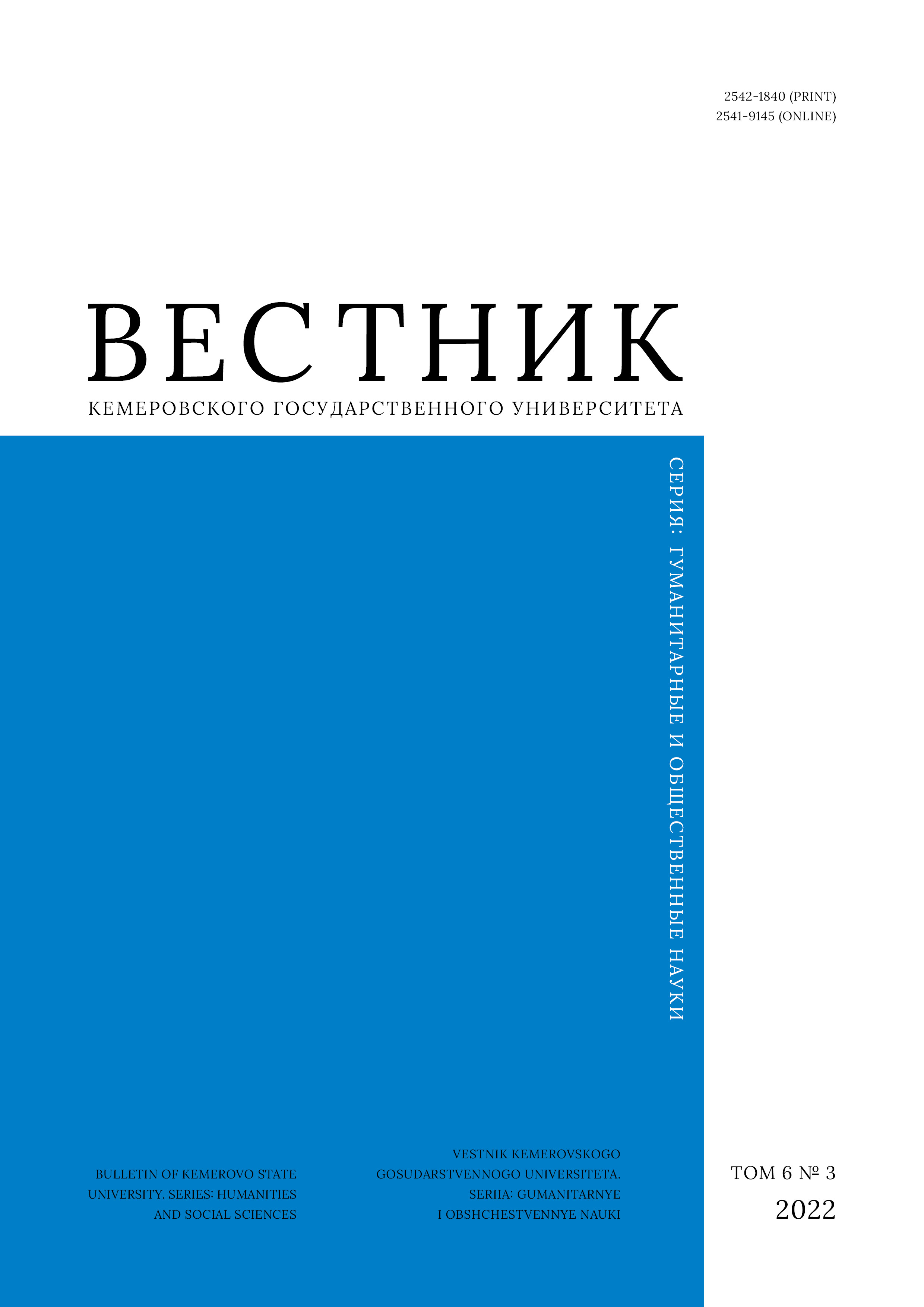Novosibirsk, Russian Federation
The article updates professional skills of a teacher in the context of digital transformation of education. The author actualizes the need for changes in the traditional functions of a schoolteacher. The new functional features include motivation management (pedagogical coaching), designing individual academic road maps (pedagogical design), creating lesson scripts (pedagogical directing), providing pedagogical assistance (personal tutoring), and encouraging positive involvement (pedagogical animation). The article establishes a logical connection between these new professional functions in the teacher's activity and the key principles of digital education. It also offers some new prospect areas in professional teacher training, e.g., theory and methodology of teaching and upbringing in the context of digital education.
digital transformation of education, academic activity, pedagogical functions, professional roles of teachers, humanization of education, pedagogical interaction, digital competence of a teacher, non-formal education
1. Dautova O. B., Ignateva E. Yu., Shilova O. N. Mass blended learning format how to move towards digital education. Nepreryvnoe obrazovanie: XXI vek, 2020, (3). (In Russ.) http://dx.doi.org/10.15393/j5.art.2020.6045
2. Andrienko E. V. Pedagogical professionalism. Novosibirsk: NSPU, 2011, 188. (In Russ.)
3. .Isaev I. F. Professional and pedagogical culture of the teacher. 2nd ed. Moscow: Akademiia, 2004, 208. (In Russ.)
4. Kuzmina N. V., Kukharev N. V. Psychological structure of the teacher's activity. Gomel: GSU, 1976, 57. (In Russ.)
5. Slastenin V. A., Isaev I. F., Shiyanov E. N. Pedagogy. Moscow: Akademiia, 2002, 576. (In Russ.)
6. Bilenko P. N., Blinov V. I., Dulinov M. V., Esenina E. Yu., Kondakov A. M., Sergeev I. S. Didactic concept of digital vocational education and training. Moscow: Pero, 2019, 98. (In Russ.)
7. Vezirov T. G. Continuing education of teachers in the context of digitalization of education. Pedagogicheskii zhurnal, 2019, 9(4A): 414-423. (In Russ.) https://doi.org/10.34670/AR.2019.44.4.006
8. Grebenyuk T. B. Future teacher's training to the digitalization of the education as a pedagogical problem. Nauchno-metodicheskii elektronnyi zhurnal "Kaliningradskii vestnik obrazovaniia", 2020, (2): 20-27. (In Russ.)
9. Dyakova E. A., Sechkareva G. G. Digitalization of education as a basis of training teachers of the XXI century: problems and solutions. Vestnik Armavirskogo gosudarstvennogo pedagogicheskogo universiteta, 2019, (2): 24-35. (In Russ.)
10. Sergeeva I. V. Digital teacher in online education. Nauchnye trudy Instituta Nepreryvnogo Professionalnogo Obrazovaniia, 2016, (6): 117-122. (In Russ.)
11. Shulga I. I. Pedagogical culture: the value-semantic context of digital transformation of education. Journal of Pedagogical Innovations, 2022, (1): 5-12. (In Russ.) https://doi.org/10.15293/1812-9463.2201.01
12. Voronina D. V. Instructional design in modern Russian education: problems and ways of development. Pedagogicheskii zhurnal, 2016, (3): 61-68. (In Russ.)
13. Vostokova S. N. Pedagogical design as an effective online education technology. Science, education, innovation: actual challenges of the XXI century: Proc. Intern. Sci.-Prac. Conf., Belgorod, 12 Aug 2021. Belgorod: APNI, 2021, 116-120. (In Russ.)
14. Zadorina O. S. The content and principles of pedagogical process. Obrazovanie i nauka. Izv. UrO RAO, 2010, (7): 46-55. (In Russ.)
15. Shulga I. I. Pedagogical animation. Moscow: Iurait, 2019, 150. (In Russ.)
16. Kovaleva T. M. Course of Fundamentals of Tutor Support in General Education: lectures 1-4. Moscow: Pedagogicheskii universitet "Pervoe sentiabria", 2010, 56. (In Russ.)
17. Kolosova E. B. Application of theatrical and game pedagogy techniques in the context of tutor analysis of the training session. Experience in training tutors for educational institutions in Moscow. Moscow: Karpov E. V., 2015, 36-43. (In Russ.)
18. Rybalkina N. V. Reflections on tutoring. Moscow: Resurs, 2016, 188. (In Russ.)
19. Kwiek M. Academic entrepreneurialism and changing governance in universities. Evidence from empirical studies. Multi-level governance in universities, eds. Frost J., Hattke F., Reihlen M. Cham: Springer, 2016, vol. 47: Higher education dynamics, 49-74. https://doi.org/10.1007/978-3-319-32678-8_3
20. Littlecott H. J., Moore G. F., Murphy S. M. Student health and well-being in secondary schools: the role of school support staff alongside teaching staff. Pastoral Care in Education, 2018, 36(4): 297-312. http://dx.doi.org/10.1080/02643944.2018.1528624
21. MacDonald F. J., Bottrell D, Johnson B. Socially transformative wellbeing practices in flexible learning environments: invoking an education of hope. Health Education Journal, 2019, 78(4): 377-387. http://dx.doi.org/10.1177/0017896918777005
22. McGill C. M., Ali M., Barton D. Skills and competencies for effective academic advising and personal tutoring. Front. Educ., 2020, 5. https://doi.org/10.3389/feduc.2020.00135
23. Rospigliosi P. A. Digital transformation of education: can an online university function fully? Interactive Learning Environments, 2020, 28(8): 945-947. http://dx.doi.org/10.1080/10494820.2020.1843240
24. Schulenberg J. K., Lindhorst M. J. Advising is advising: toward defining the practice and scholarship of academic advising. NACADA Journal, 2008, 28(1): 43-53. http://dx.doi.org/10.12930/0271-9517-28.1.43
25. Yale A. T. The personal tutor - student relationship: student expectations and experiences of personal tutoring in higher education. Journal of Further and Higher Education, 2019, 43(4): 533-544. http://dx.doi.org/10.1080/0309877x.2017.1377164
26. Shulga I. I., Sergeeva O. N. University campus: new self-study opportunities in the digital era. Journal of Pedagogical Innovations, 2022, (1): 49-59. (In Russ.) https://doi.org/10.15293/1812-9463.2201.06
27. Shulga I. I. Pedagogical animation: children's leisure and non-formal education. Novosibirsk: NSPU, 2018, 158. (In Russ.)


















